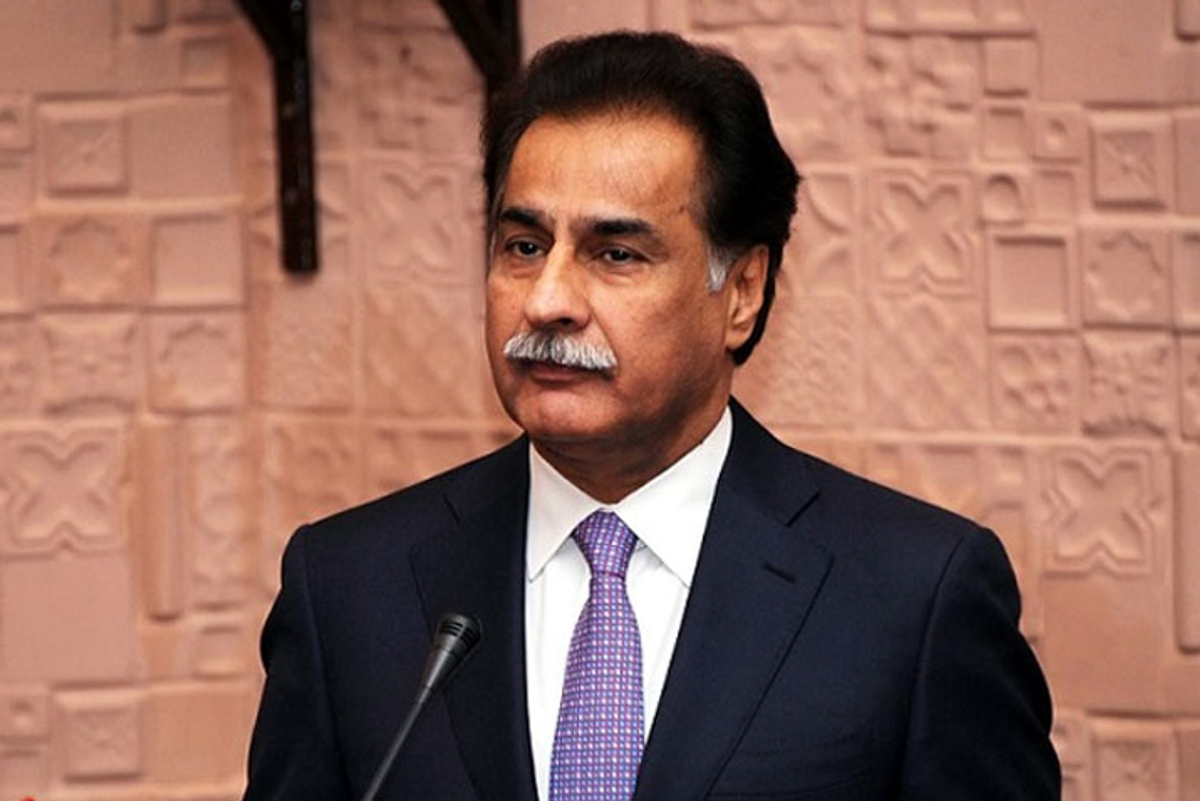‘PTI reserved seats case must be decided under amended election laws’
Custodian of Pakistan's National Assembly urges electoral watchdog to allocate reserved seats to lawmakers of ex-PM Imran Khan's party under new law, against apex court judgment

Javed Hussain
Correspondent
I have almost 20 years of experience in print, radio, and TV media. I started my career with "Daily Jang" after which I got the opportunity to work in FM 103, Radio Pakistan, News One, Ab Tak News, Dawn News TV, Dunya News, 92 News and regional channels Rohi TV, Apna Channel and Sach TV where I worked and gained experience in different areas of all three mediums. My journey from reporting to news anchor in these organisations was excellent. Now, I am working as a correspondent with Nukta in Islamabad, where I get the opportunity of in-depth journalism and storytelling while I am now covering parliamentary affairs, politics, and technology.

Speaker of Pakistan's National Assembly, Sardar Ayaz Sadiq.
Radio Pakistan
NA Speaker Ayaz Sadiq writes second letter to Election Commission of Pakistan pressing for swift action on reserved seats allocation
Argues Supreme Court's earlier ruling no longer applies due to amended Election Act, 2017
Warns of potential consequences if ECP delays decision furtherFollowing up on his initial correspondence from last month, the Speaker for Pakistan's National Assembly Sardar Ayaz Sadiq has sent another letter to the Election Commission of Pakistan (ECP), urging swift action on the matter of allocating reserved seats to parties in parliament, including opposition party Pakistan Tehreek-e-Insaf (PTI).
In July 2024, Pakistan's Supreme Court (SC) issued a ruling that significantly impacted the political landscape. The court determined that Imran Khan's political party, the PTI, was entitled to seats specifically allocated for women and minority representatives. This decision was viewed as a considerable challenge to the governing alliance led by Prime Minister Shehbaz Sharif.
However, the government filed a review appeal challenging the decision. Last month, the apex court released the detailed verdict of its July 12 order.
The 70-page judgment criticized the country's electoral watchdog - the Election Commission of Pakistan (ECP) - for failing to uphold its constitutional duty during the 2024 general elections, labeling its decision to withhold reserved seats from the PTI as illegal and unconstitutional.
The same day, the federal minister for law, Azam Nazeer Tarar, gave rise to a new controversy. He stated that election laws have changed since the court's July 12 decision, stressing that the new law prevents "resetting the clock" to February 8, 2024 general elections.
"Independents cannot join political parties after winning an election, and political parties cannot submit priority lists for reserved seats beyond the stipulated deadline," he added.
Sadiq's letter
In his first letter, dispatched on September 19, Sadiq emphasized the importance of maintaining parliamentary autonomy and implementing the Elections Act 2017, particularly regarding the allocation of reserved seats for women and non-Muslims in the National Assembly.
Now, in his second letter, the Speaker has reiterated these concerns and added new urgency to the request. This follow-up communication incorporates input from various parliamentary leaders, reiterates the need for a prompt decision on reserve seats under the Election Amendment Act 2017, and underscores the potential consequences of delayed action.
Sadiq referred to his previous correspondence and also mentioned the communications received from parliamentary leaders in the National Assembly.
The Speaker stated that these parliamentary leaders have urged him to implement the Elections Act 2017, which was amended by Parliament to allocate reserved seats for women and non-Muslims in the National Assembly.He noted that in their letters to him, as the custodian of the House, it was indicated that the issue of allotment of these reserved seats is currently pending with the ECP.The confusion
The legal question before the commission is whether the aforementioned seats should be allocated in accordance with Article 51 of the Constitution, read in conjunction with Sections 67 and 104 of the Election Act, 2017, or if they should be allocated as per the Supreme Court (SC) judgment recognized by Parliament prior to the amendments in the Elections Act 2017.
Sadiq laments that despite nearly three weeks having passed, the ECP has not reached a decision. He argued that this inaction could be seen as a violation of the law of the land and a challenge to the legislative powers of Pakistan's Parliament. Consequently, he stated parliamentary leaders have requested that he issue an urgent reminder to carry out the necessary actions in accordance with the legal framework provided by the Constitution and current law.
The Speaker stated that, in light of these letters, the matter could be resolved without further delay by adhering to the existing provisions of the amended Constitution and the Elections Act, 2017, as enacted by Parliament.
'No take-backs allowed'
In his earlier letter to the ECP, Sadiq emphasized that the Supreme Court’s judgment on reserved seats “cannot be implemented under the Amended Election Act, 2017”. He cautioned that any action undermining the independence of Parliament could erode public confidence and trust in our institutions.
The letter argued that, given the context of the recently amended Election Act, which was enacted subsequent to the Supreme Court's decision, the previous ruling on reserved seats is no longer applicable under the new legal framework.
The letter emphasized that the Supreme Court's judgment was based on legislation that has since been superseded, rendering the verdict inapplicable in the current legal landscape.
Furthermore, the Speaker's message asserted that the amended legislation would take precedence over the Supreme Court's earlier ruling, a fact acknowledged by the apex court itself. The letter also highlighted that the Election Commission of Pakistan has a legal duty to respect and implement the laws passed by the parliament.
In this context, the Speaker asserted that independent candidates who have already affiliated themselves with a political party should not be permitted to switch parties under the terms of the amended Election Act. He argued that since the Supreme Court's judgment was based on legislation predating the amendment, that ruling is no longer applicable.










Comments
See what people are discussing